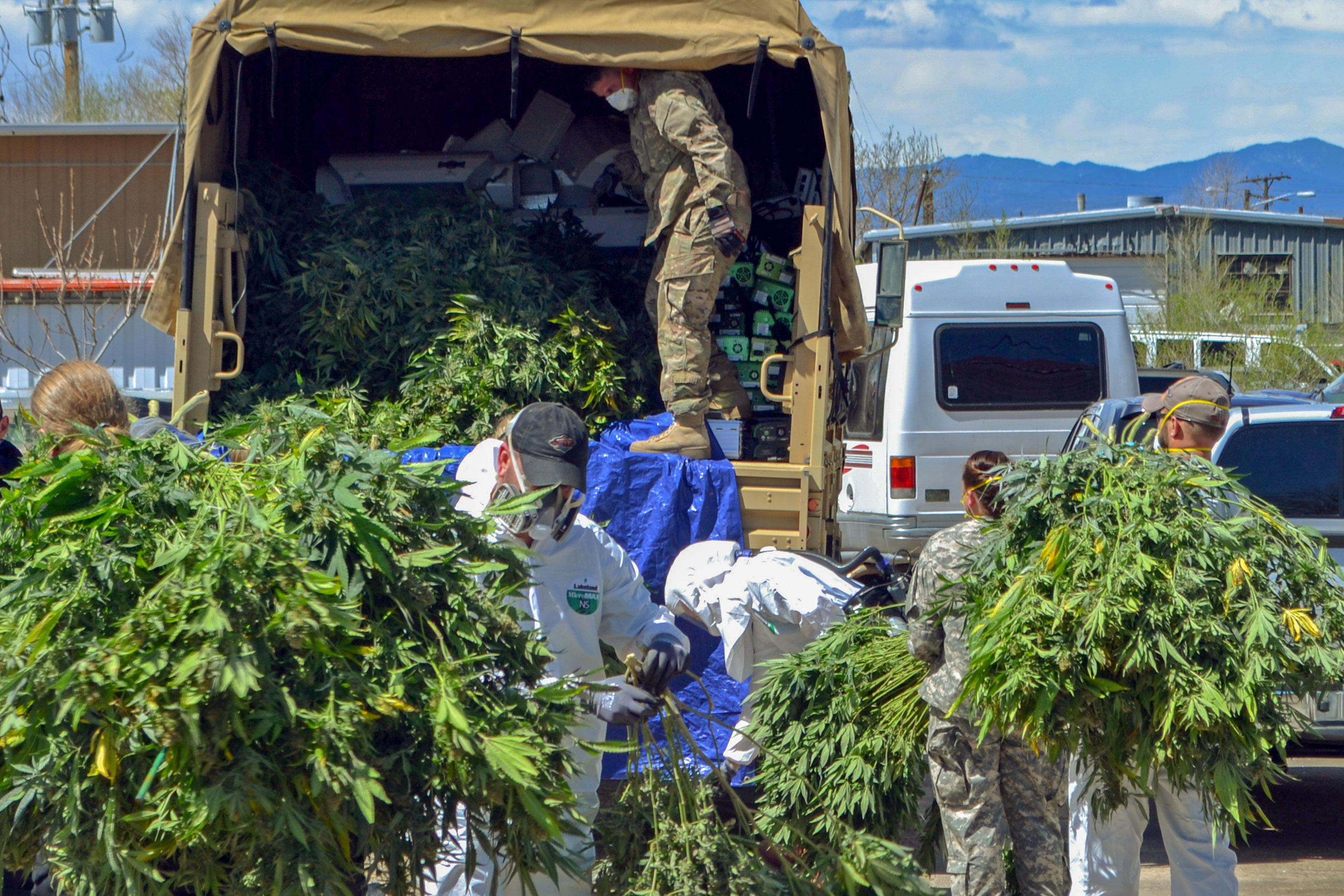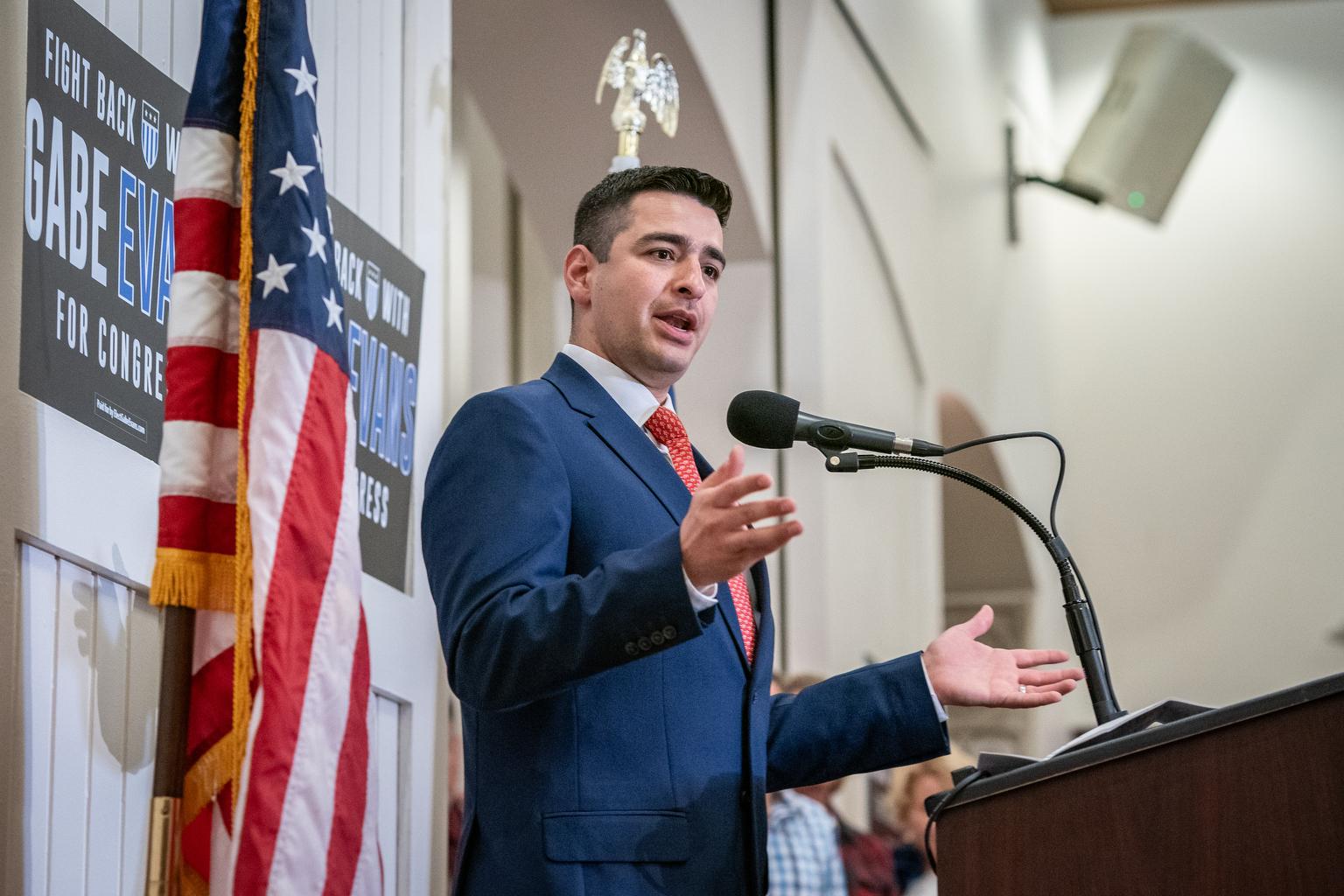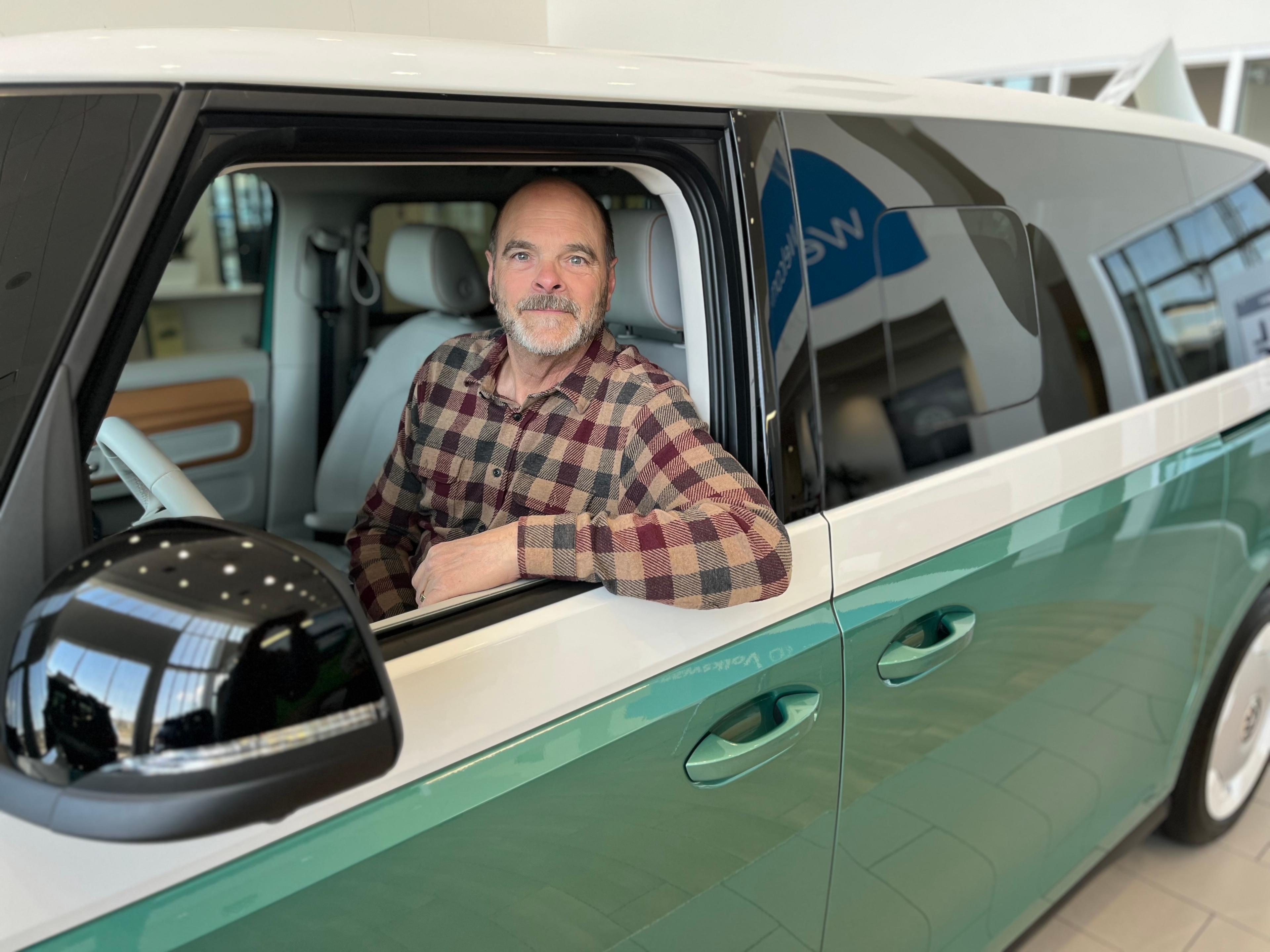
Gov. John Hickenlooper said the signs are pointing away from Colorado as the location of Amazon’s second headquarters.
Denver made Amazon’s list of 20 finalists for the facility earlier this year. But the Wall Street Journal reported earlier this week that Amazon officials revisited several of those cities — and Denver wasn’t among them.
“I think there’s a possibility we’re not in the running,” Hickenlooper said. ”I know there were issues around, are we too close to (Amazon’s current headquarters in) Seattle? Wouldn’t they rather have their second big hub on the East Coast?”
“They’ve got a lot of issues that are going to kind of be negotiated and decided in D.C.,” Hickenlooper said. “To me, most people I’ve talked to say either Northern Virginia or Maryland or Washington, D.C. itself are probably the favorites.”
The new headquarters is expected to deliver 50,000 jobs to the winning city.

In his regular interview with Colorado Matters, Hickenlooper also addressed an ethics complaint that’s proceeding against him, the Trump administration’s climate change policies, and a possible crackdown on the black market in marijuana.
Pot production and sales are legal in Colorado but prohibited under federal law. In a recent op-ed for The Denver Post, outgoing U.S. Attorney Bob Troyer called for a federal crackdown.
“We have become a source-state, a theater of operation for sophisticated international drug trafficking and money laundering organizations from Cuba, China, Mexico and elsewhere,” Troyer wrote.
Hickenlooper conceded there is a “significant black market” in Colorado and said the state is putting more marijuana tax money toward interdicting illegal shipments. The state’s estimate of the amount of legal traffic may differ from Troyer’s, “but Mr. Troyer and I completely agree, having Colorado connected with exporting drugs in any way is not acceptable,” Hickenlooper said.

On climate change, the governor responded to a recent international report predicting dire impacts if current trends continue by blasting the Trump administration. He said Trump has taken “three strikes” against the environment: It’s rolling back rules governing methane emissions from oil and gas production; encouraging coal mining despite its environmental impacts; and refusing to implement new fuel-efficiency standards for cars.
“My question is what does the Trump administration and the Republican party have against clean air?” Hickenlooper said. “And looking at climate change, is there going to be some accountability for the people that are going out and spending millions and millions of dollars to deny that climate change is even happening … What accountability is there going to be for the people who are actually making a profit, they’re doing this for their own self interest, and yet they’re putting the rest of America at risk?”

As Hickenlooper nears the end of his term in office, he faces an ethics complaint alleging that he accepted travel and lodging for events across the world in violation of state ethics laws. It was filed recently by former state House Speaker Frank McNulty, a Republican.
Shortly after the Colorado Matters interview, news broke that the state’s Independent Ethics Commission had ruled the complaint deserves further investigation. Reached by phone later in the day, the governor said he couldn’t comment on the specifics.
“I think it’s a political stunt,’’ he said. “I think in the normal course, as we go through the complaint, it will be proven that we’ve done everything we’re supposed to have done and that the allegations are not correct.”
McNulty has denied the complaint is a stunt.
Full Transcript
Ryan Warner: This is Colorado Matters from CPR News. I'm Ryan Warner. Colorado's Ethics Commission has ruled that a complaint against Democratic Governor John Hickenlooper deserves further investigation. This complaint alleges that Hickenlooper accepted travel and lodging for events across the world in violation of state ethics laws. It was filed recently by former State House Speaker Frank McNulty, who's a Republican. I spoke with the governor shortly after CPR broke news of the commission's decision. Have you traveled on private airplanes owned by corporations and accepted travel expenses paid for by corporations, as the complaint alleges? Governor John Hickenlooper: I've been advised that until this goes forward, I'm not supposed to discuss the specifics of the allegations. Again, I will repeat, as I've said many times, I think it's a political stunt. I think in the normal course, as we go through the complaint, it will be proven that we've done everything we're supposed to have done and that the allegations are not correct. RW: Let me just say that it's not the commission's policy that you can't speak about it, so that advisement is coming from your own folks? JH: The advisement to almost all state employees, I think, is when you're in a legal matter that is about to go forward through a process, either to a judge or to some sort of, in this case, a commission, that we're not supposed to discuss it in public. RW: Now you call this a political stunt, but unanimously this commission says this is non-frivolous. If it were a stunt, wouldn't they have dismissed it as frivolous from the get-go? JH: Again, I can't get into talking about the specifics of it, but the people that created this, Frank McNulty and company, create a nonprofit literally two days before they filed this. The thing goes on for many, many, many pages, right, in all kinds of detail, a lot of it erroneous, but again, I'm not supposed to be talking about it. You're trying to get me into trouble. Our impression is that this was a political stunt. Now maybe it will be proven that they have the best interests of the state in mind, and that somehow they're going to protect some great harm done to the state, but we don't think that these allegations, that they're going to stand up. I mean, that is pretty much everybody in my office who has looked at this agrees to that. RW: Do you think this has any impact on your presidential aspirations? JH: No. I think this is an effort to change the political waters. I think they're more concerned about just trying to muddy the waters of the midterms rather than me running for president. I'm not running for president. I mean, I haven't made that decision. RW: Thanks, governor. JH: You bet. Any time. RW: Democrat John Hickenlooper, speaking with me this afternoon. Frank McNulty said his complaint is based on evidence that the governor repeatedly let private companies or individuals pay for his travel to conferences around the world. Frank McNulty: What we're most concerned about is the fact that he's been jet-setting nationally and internationally on other people's dimes, and no one has held him accountable. Finally, we were able to do the research that allowed us to connect the dots that he had been accepting private jet travel illegally, hotel rooms illegally, lavish dinners illegally. All of that is in violation of our state constitution. RW: McNulty denies that this is a political stunt. Frank McNulty: The facts of the complaint speak for themselves. The governor either paid for these trips or he didn't. If he did pay for them, then all he has to do is present the proof that he paid for them, and we'll withdraw the complaint. If the governor didn't pay for these trips, then he's in violation of our state constitution. He accepted these gifts illegally, and he needs to account for them. RW: The governor has thirty days to respond before the Independent Ethics Commission decides on the scope of any investigation. You heard the governor on the phone after news of the commission's decision to proceed broke. Earlier in the day, Tuesday, we already sat with him for our regular monthly interview. Let's hear that conversation now, which touched on the marijuana black market, climate change, and Amazon. Metro Denver is in the running for Amazon's second headquarters. You know this. The Wall Street Journal reports that the company has followed up with several cities, it gets a fresh round of visits. Denver seems to be missing from that list. Do you have information you can share with us? JH: Well, I don't have any information so if they've come to Denver, I haven't heard about it. RW: Okay. JH: I will say that our Office of Economic Development, when they are asked to be quiet about things, they don't talk to me. RW: Do you see these visits to other cities and think, "Well, gosh, maybe we're not in the running?" JH: Yeah. I think that it's possible that we're not in the running. I know that there were issues around, "Are we too close to Seattle? Wouldn't they rather have their second big hub on the east coast?" They've got a lot of issues that are going to be decided and kind of negotiated in D.C. To me, most people I've talked to think that either northern Virginia or Maryland or Washington D.C. itself are probably the favorites. RW: I've joked that the only announcement more prolonged than your presidential one... JH: It's going to go on and on I think. RW: Is the Amazon second headquarters announcement which I guess is still due by the end of the year. Is that your understanding? JH: Yeah. I haven't heard anything differently about it. RW: Okay. JH: I did have one wag who came up to me and says, "You know, I've heard they are putting it in Aspen?" I thought to myself, "Now, there's a rumor." There is a rumor that can't possibly have a single leg. RW: I want to talk about marijuana, which is legal of course in Colorado but still a violation of federal law. The outgoing U.S. Attorney Bob Troyer wrote an op-ed in the Denver Post recently saying that his office planned to crack down on the marijuana trade, particularly the black market. He said Colorado has become, quoting here, "A source state, a theater of operation for sophisticated international drug trafficking and money laundering organizations from Cuba, China, Mexico and elsewhere." You and I have talked about this before. There has been some tightening over medical marijuana in particular and growing plants for others. Do you agree with that assessment from Bob Troyer? JH: Well he has information that I'm not privy to and I don't have access to. I'm not denying, again, Mr. Troyer has information I don't. I can say that we are putting more money, marijuana tax revenue, towards public safety and maybe intercepting some of this drug trafficking that's going on. We certainly know there is a significant black market. It could be as high as 20 or 25 percent, but think about it in terms of recreational marijuana, five years ago 100 percent was a black market. But Mr. Troyer and I completely agree, having Colorado connected with exporting drugs in any way is not acceptable. RW: Do I hear that you have doubt about Troyer's assertions or that you think they're maybe overblown? JH: No, no. Bob Troyer has access to information and data that I don't have. We do large scale studies. Our studies don't agree with all the things that Mr. Troyer said. I know we got a report coming out in a few weeks. That's where we really have to sit down and say, "All right. Here's where his statistics come. Here's where our statistics come from." The difference is in scale. There's still a black market problem and I think, "Why get divided and fight over is it bigger or larger? Let's all unite and go after it." RW: I'll just say that Troyer's on his way out. The new U.S. Attorney Jason Dunn was confirmed by the Senate earlier this month. Is there a change you'd make that Colorado hasn't made already to address the black market, or do you think it's a matter of time with the current resources? JH: So we've increased enforcement resources significantly in the last couple of years. We lowered the plant counts. The number of plants, you used to be able to grow 99 plants. Well, that was an invitation to a black market. That was something that happened before my time but we probably should have gotten to it sooner. RW: This is medical use. JH: Yeah, but again that became a pipeline I think for a lot of the illegal activity. We lowered taxes on recreational marijuana for the specific reason to try and drive the black market, make it less worth the risk to get into the black market. And there's more we can do. A big part of it is just putting more resources towards helping local law enforcement officials go after this black market and several of the places, it's interesting, a number of busts where they had outdoor grows of large scale, hundreds, thousands of marijuana plants, I think we have the ability at very low cost to get digital satellite information, a high accuracy visual information where, I can't imagine if you've got a couple of acres of marijuana plants it's going to look different from the photograph than pine trees. So let's take some of that information and go after it and if there are these large grows, which several people have said we've busted three of them, there are probably many of them, let's go find them. RW: To climate change now and a recent report by a highly respected international group that says, "The pace of change and the impacts are going to be even worse than scientists have previously predicted." In June, you issued an executive order requiring Colorado to adopt what are called low emission vehicle standards, really following the example of California, which has already adopted those rules. The Trump administration on the other hand has said that it will roll back standards for more fuel efficient vehicles and prohibit California from setting its own strict rules. Why buck the federal government on this? JH: You know the federal government, we worked so hard to get our methane regulations in Colorado, we're the only state- RW: This is in connection with oil and gas. JH: Right, that is reducing fugitive emissions from all the oil fields. Now Canada is rolling those out, and yet President Trump and his administration, those almost identical rules were being used for all the BLM land in the United States. They're rolling them back. So that's strike one. Then you go to strike two in terms of coal emissions and the emissions from burning coal are not just the CO2 and the other climate change gases. It's also particulates. If you've got a child or anybody who deals with asthma then fighting for more coal, especially when it costs more to burn it now, that's strike two. And then I look at the low emissions vehicles and that's probably the largest scale, that's strike three. Why, once Detroit, and I've talked to senior executives at several of the largest motor companies... RW: American motor companies. JH: American motor companies and one import and have said, "Are you guys pushing for this? Is this something, you negotiate so long, you got all your manufacturing lines of production in place." They said, "We are not pushing for this, this is coming out of Washington, this is a politically driven initiative." So, that's strike three. My question is what does the Trump administration and Republican party have against clean air? And looking at climate change, is there going to be some accountability for the people that are going out and spending millions and millions of dollars to deny that climate change is even happening. If these scientists are right and the study last, that you're referring to... RW: IBCC. JH: The IBCC, they echoed and touched on again a lot of the permafrost. And I was unaware of how much methane is locked up frozen in the permafrost. And now, as that begins to thaw, that methane causes more climate change, 60 times more than CO2, we're putting that into the air at a rate that was unthought-of even 10 or 15 years ago. What happens when these feedback loops get to the point where suddenly the cost to cities along oceans, as the ocean become more acidified, which is happening, we can measure that, that's clearly a result of climate change. What accountability is there going to be for the people that are actually making a profit, they're doing this for their own self interest and yet they're putting the rest of America at risk? RW: I want to wrap up on the election. So, your administration's coming to an end and there's the race to replace you. The Democratic candidate is Jared Polis, and he has loaned his campaign more than $22 million of his personal money. You've had this job for eight years, is it worth $22 million? JH: And I'll tell you something about Jared Polis that's very interesting, RW: Doesn't necessarily go to the heart of my question. JH: Yeah well, it will. RW: Okay. JH: I think that most people that when they get to running for governor or US Senate, that they have an ambition that's kind of always been there, and it's often ego driven. And I think I'm an exception to that rule, and in that sense, I can see it in others, or at least I believe I can. And I look at Jared Polis, he's not in a driven to be the macho big shot or the center of attention. He has, and I've talked to two old friends of his from when he was a child, that even when he was a little kid, he was the one who always helped the other kid. If the other kid was getting bullied, he stood up for the other kid. He's just, since his earliest childhood, he's been someone who wants to help others and do good. And he has, he's put in a situation where he made a great deal of money, while he was still in college, but very, very rare, and he's decided to use that to try and make the world a better place. RW: The point is that Walker Stapleton has his own ideals, the Republican candidate- JH: Sure. RW: For governor, and his own reasons for running, which may be beyond himself, but he doesn't have $22 million, is that fair? JH: Yeah and I didn't answer your question, is it worth it, was what you first asked. RW: Sure. Two part question, before we go. Is it worth it, one. And two, is it fair that men of ideals might be on such uneven playing fields? JH: So it is, I think it is worth it if you're someone like Jared Polis who really wants to do good, and put service above getting other benefits of life, I think he puts service very, very high. Now, is it fair that he has more money? This is America, and we have gone back and forth. I mean, at this point according to our Supreme Court, corporations are people, but certainly individuals who have succeeded and accumulated great wealth, are protected and allowed free speech, so he has that right. Now there is an initiative on the ballot this year, that is actually going to address the fairness of this, and say, "Alright, if someone puts a million dollars into their own campaign- RW: Contribution limits for the rest of the candidates would increase as a result. JH: Right, by times five. RW: Jared Polis has actually said he's supportive of this, are you? JH: Yeah. RW: You're speaking of Amendment 75 there. Governor thanks for being with us. JH: Always a pleasure, thanks for having me. |









